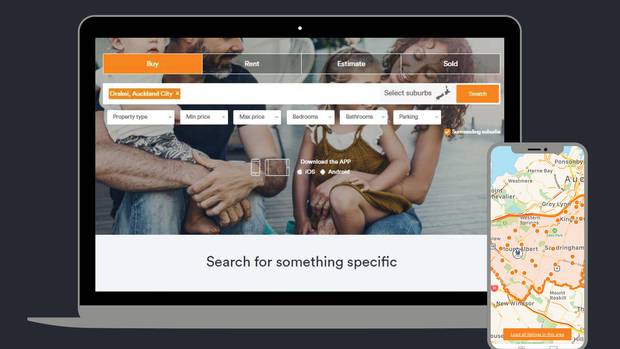PHOTO: OneRoof House Price Report
New Zealand’s housing market has started 2023 on the backfoot, with the nationwide average property value falling $118,000 in the last 12 months to $977,000, new OneRoof figures show.
However, the downturn may be losing momentum, with data from the OneRoof-Valocity House Value Index showing a slowdown in the rate of decline in some regions and major metros.
The overall rate of decline has gone from a peak of 4.3% in the September quarter to 3.1% in the three months to the end of January.
Auckland’s rate of decline has gone from 5% to 3.9% over the same period while Greater Wellington’s rate of decline has pulled back from a high of 9% to 4.9%.
While it may be too early to conclude that the worst of the downturn is over, with low sales volumes bringing a fair amount of volatility to market readings, the figures suggest that the initial shock of rising interest rates and the cost-of-living squeeze may have been absorbed by buyers and sellers.
Determining whether or not the slowdown in the value decline is a blip will be the flow of new listings in February and March – typically the real estate’s busiest period – after weaker than expected activity in spring and early summer.
Indications that inflation has peaked may also give the Reserve Bank second thoughts on the size of future rises in the Official Cash Rate and give certainty to prospective buyers and sellers who have held off decisions to see how the market downturn plays out.
The latest OneRoof-Valocity House Value Index figures show that the market is still in poor shape after some of the steepest house price falls since the GFC.
Property values in all but two regions are lower than they were a year ago, with homeowners in Auckland and Greater Wellington hit the hardest.
Auckland’s average property value fell 15.1% ($238,000) to $1.341 million in the last 12 months while Greater Wellington’s dropped 21% ($237,000) to $892,000. The average property value in Hawke’s Bay and Manawatu-Whanganui also dropped by double-digits.
Taranaki’s average property value of $702,000 remains unchanged year on year, although it has fallen 4% from a peak of $731,000 in June. West Coast remains the only region to register value growth. Its average property value is up 7.2% ($28,000) on January 2022 – a boost for sellers in the country’s cheapest housing market – but a rise of just 0.2% over the last quarter suggests it will soon be joining the rest of the country in negative growth territory.
The figures show house values in the region peaked at $421,361 in late November, but the performance of Southland, another lower value housing market, points to an easing of values rather than a steep decline.
Southland’s average property value, while down 2.53% ($13,508) from a peak of $534,000 in May, has seen growth (albeit small) in the last few months.
James Wilson, head of valuations at Valocity, said: “The latest figures point to continued slides in the market even though the rate of decline may be easing in some parts of the country.
“House prices in 50 territorial local authorities (TLAs) are lower now than they were a year ago, and in Wellington, Lower Hutt and Upper Hutt lower than they were two years ago.
“The best-performing TLAs areas – Clutha, Gore and Grey – only saw modest quarterly growth, and these were more remote areas with lower transaction volumes.
“That being said, the New Zealand economy remains strong, with 2% growth in the September quarter and unemployment sitting low at 3.3%. These two factors mean that while borrowers may be increasingly stretched as a result of inflation and interest rate pressures, the country is unlikely to see a rapid rise in mortgagee sales. Furthermore, the return of international tourists, students and immigrants may indeed increase demand for property in some areas.”
For those who bought before the boom, values are up 27% on pre-pandemic levels, meaning there are still significant gains to be made for well-positioned homeowners who decide to sell in the current climate.
According to the OneRoof-Valocity data, homeowners in 55 suburbs are sitting on post-Covid gains of $500,000-plus, with the boom delivering the biggest property value lifts for homeowners on Waiheke Island (up $1.1m on January 2020’s average property value) and Ben Lomond (up $1.06m over the same period).
The figures also show value lifts of between $200,000 and $500,000 in another 552 suburbs over the same period, although the downturn is fast-eroding gains in 63 of the 1192 suburbs that have recorded 10 or more settled sales in the last 12 months.
READ MORE VIA ONEROOF
MOST POPULAR
- Claims about Jacinda Ardern’s wealth
- The 10 most expensive streets in New Zealand revealed
- He sometimes struggled to pay staff, but owns a $4m holiday home
- Auckland home buyers wanting to move south as crime rises
- Grand Designs NZ penthouse for sale
- THE ANCIENT STONE CITY: Proof of NZ civilisation before Kupe
- Millennials are buying multimillion-dollar homes via TikTok as ‘property porn’ captures the next generation
- Abandoned land for sale
- Real estate industry LEGEND will be sadly missed
- Future of Grand Chateau Tongariro Hotel shrouded in mystery

















